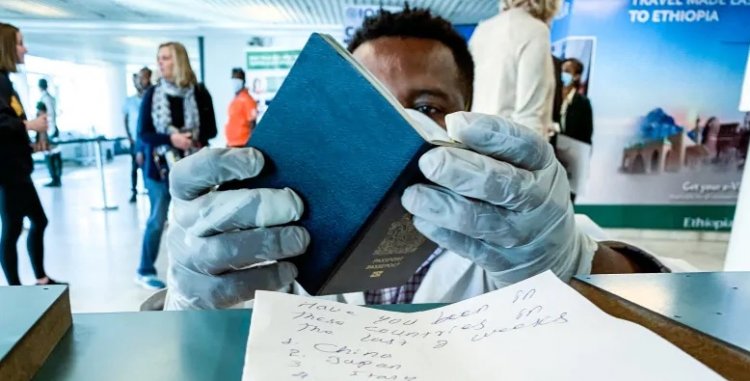After a trip they considered peaceful, the more than 200 passengers upon arriving in Luanda say that they were subjected to deplorable conditions while waiting for orders to be transferred to the quarantine center of Calumbo, Viana municipality.
Passengers reported episodes of fainting, crying of children due to thirst and hunger, while waiting for directions for transfer, referring that there were "riots" when they realized that "only a few" would be subjected to mandatory quarantine.
"The trip was smooth, taking away the confusion here installed at the international airport 4 de Fevereiro, with turmoil, the separation of treatment was horrible and extremely inhuman," António Massango, who came from Lisbon, told Lusa.
According to the bank official, passengers ended up not being required to be quarantined, as previously announced in Lisbon: "When we arrived here, some individuals were excluded from the quarantine," he reported.
Then, he added, "this caused some turmoil, because the quarantine was supposed to be for everyone and not for some", adding that "after a mess and humiliation, with hunger, thirst, children, there were people who passed out, people were released ".
A "term of responsibility" was signed by each passenger, with instructions from the authorities assigned to the Covid-19 Interministerial Pandemic Control Commission for them to quarantine at home for 14 days.
"Indignant" with the "tumultuous" scenario registered at the international airport 4 de Fevereiro, in Luanda, was also the Angolan Emanuela Van-Dúnem, who arrived in Luanda at 05:00, coming from Porto, considering that it was a "little shame".
"When we arrived on land, we were mistreated as if we were animals with viruses. (...) They put us all in pockets and many even stopped wearing masks because they were hypertensive", he said.
The architect, who questions the country's sanitary measures for receiving flights from countries that record positive cases of the new coronavirus, also regretted the "deplorable conditions" in which many children were.
"We went through a screening, but when we stayed at the gate of the landing they told us that we would not enter, because we would go to Calumbo, it was more than seven hours without water, abused children, there was no breathing", he shot.
Albertina Tomás, an Angolan passenger from the city of Porto, also deplored the situation, saying that they will have to quarantine at home, because in the center of Calumbo "there are no accommodation conditions for so many people".
For the communication and marketing professional who still has in mind the "deplorable conditions" faced at the 4 de Fevereiro airport, on the spot the passengers "seemed stateless".
In turn, the Portuguese Bruno Vieira, who came from Porto, also narrated the constraints experienced, stating that they were placed on a bus in improper conditions, while awaiting orders from the authorities.
The hydraulics technician, who also signed a term of responsibility, does not believe in complying with the mandatory quarantine at home.
"I think that this mandatory quarantine measure nobody will comply with, the most fearful [people] will be able to comply, but others will work", he shot.
Angola, without confirmed case records, develops contingency plans and control measures at the main points of entry of the country and decreed, from 3 March, the ban on the entry of foreign citizens from China, South Korea, Iran, Italy, having extended on Tuesday to Portugal, Spain and France with mandatory quarantine.







